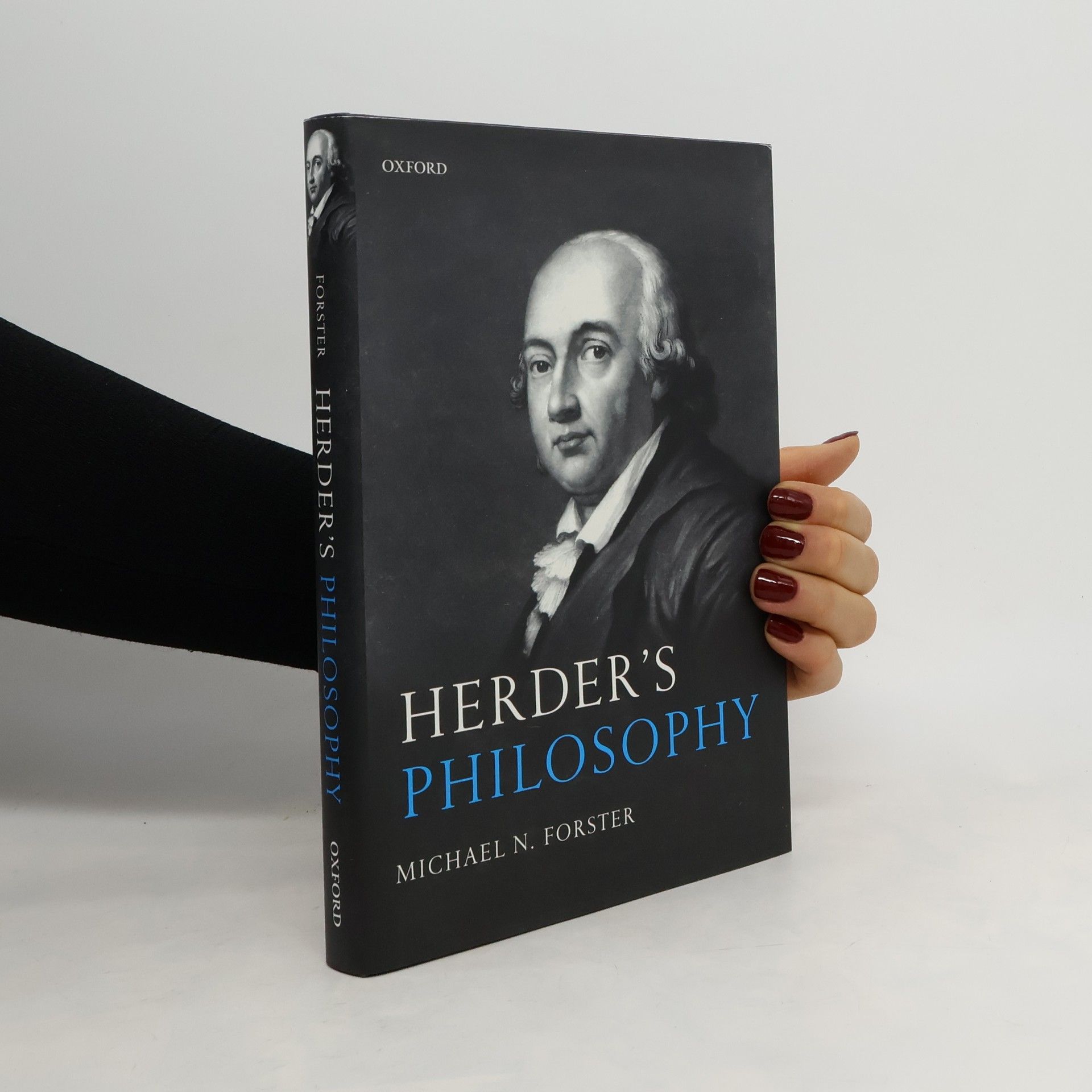Herder's Philosophy
- 352pages
- 13 heures de lecture
The exploration of Johann Gottfried Herder's ideas reveals his significant influence across various fields, including philosophy, linguistics, anthropology, and comparative literature. Michael Forster aims to highlight Herder's contributions and rectify his underappreciation in modern thought, showcasing the depth and breadth of his intellectual legacy.
